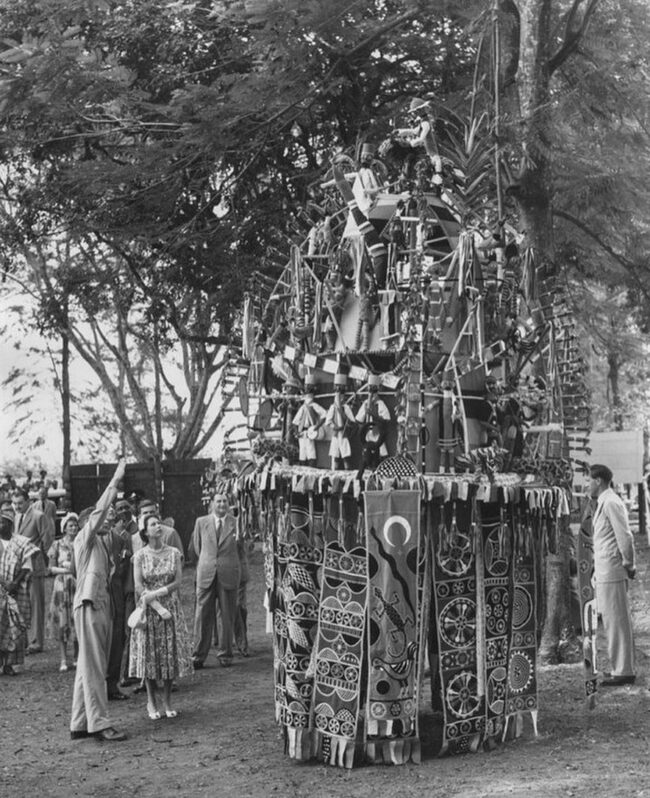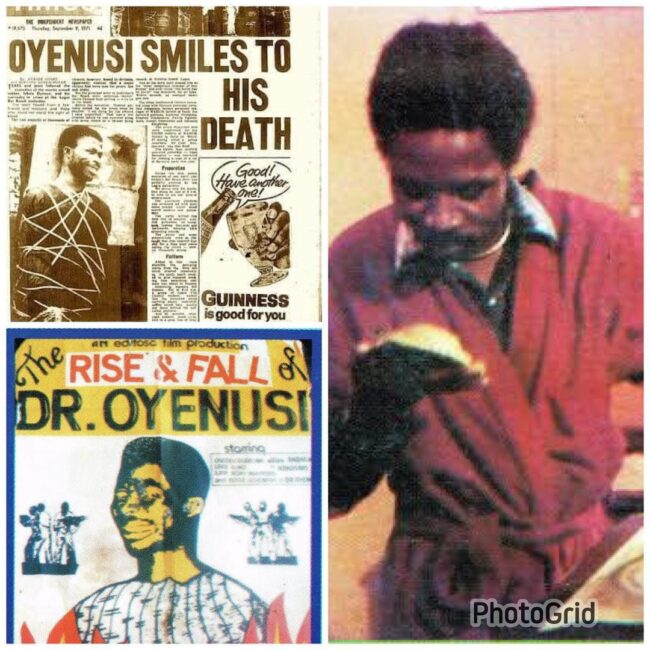Queen Elizabeth II Witnesses the IJELE Masquerade in Its Full Glory
The Igbo people have been participating in the IJELE masquerade since ancient times, and it is regarded as the largest masquerade in Sub-Saharan Africa (Anambra). One of the smaller satellite power plants constructed in Nigeria’s southeast prior to the country’s 1960 declaration of independence and the opening of the massive National Hydroelectricity Power Plant at Kainji Dam/Jebba Dam is the Oji River Thermal Power Station in Oji River, Enugu State. It was constructed with a 10 MW electrical production capacity. With the help of the nearby river and coal that is brought 50 kilometers away via overhead cable buckets from the Enugu coal site. The thermal power plant was upgraded to 30 MW following the Nigeria-Biafra civil war, providing electricity to the surrounding area as well as certain areas of Udi, Achi. 28 January 1956: During her three-week tour to Nigeria, Queen Elizabeth II saw the recently constructed power station at Oji River in East Nigeria as well as a leper settlement. The last known electricity output from the facility was in 2004. The Nigerian government has discussed proposals to reopen the plant in light of the closed coal mines in Enugu City and the plant’ssignificantly decreased water level, which prevents it from turning its turbines into an electricity-generating machine. Image info: A photo taken in 1956 during the young queen’s Commonwealth Tour of Nigeria showing her inspecting a colorful ten-foot IJELE masquerade and witnessing a leper settlement at Oji River, Enugu.


